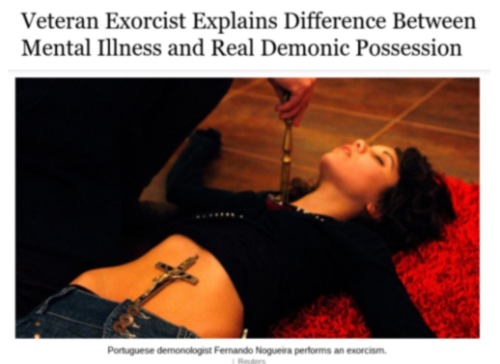Long-Time Exorcist Details How to Distinguish Possession from Mental Illness
Is it a case of possession���or ���merely��� mental illness?
It is imperative that those who make it their business to chase demons from bodies know the difference, and one veteran exorcist, a man who has been at the practice for well over six decades, says there are two ways to tell.

In reporting by Christian Today, Father Cipriano de Meo, who has been an exorcist since 1952, says that one sign of genuine possession is if the person exhibiting the concerning behavior is able to tell that a prayer is being said for him by an exorcist. The other, related sign is if the subject reacts to any such prayers being said for him in specifically blasphemous ways.
According to de Meo, an exorcist at work will usually verbalize a ���prolonged prayer to the point where if the adversary [demon] is present, there's a reaction.���
As for the typical reaction by the subject if he is, in fact, possessed?
���There's no lack of frightening facial expressions, threatening words or gestures and other things, but especially blasphemies against God and Our Lady,��� says de Meo.
So, is there anything one can do to remain immune from possession?
While there are no guarantees, Father de Meo says that the best course of action to take in order to remain free from demonic possession is to indulge in a simple life characterized by prayer. ���It's absolutely fundamental to get rid of sin and live in the grace of God,��� he said.
Additionally, those seeking to remain so insulated must refrain from engaging in such activities as those typically representative of the occult.
Father de Meo references paragraph 2116 of the Catechism of the Catholic Church for further detailing of those activities to be avoided: ���Consulting horoscopes, astrology, palm reading, interpretation of omens and lots, the phenomena of clairvoyance, and recourse to mediums all conceal a desire for power over time, history, and, in the last analysis, other human beings, as well as a wish to conciliate hidden powers. They contradict the honor, respect, and loving fear that we owe to God alone.���
By Robert G. Yetman, Jr. Editor At Large



